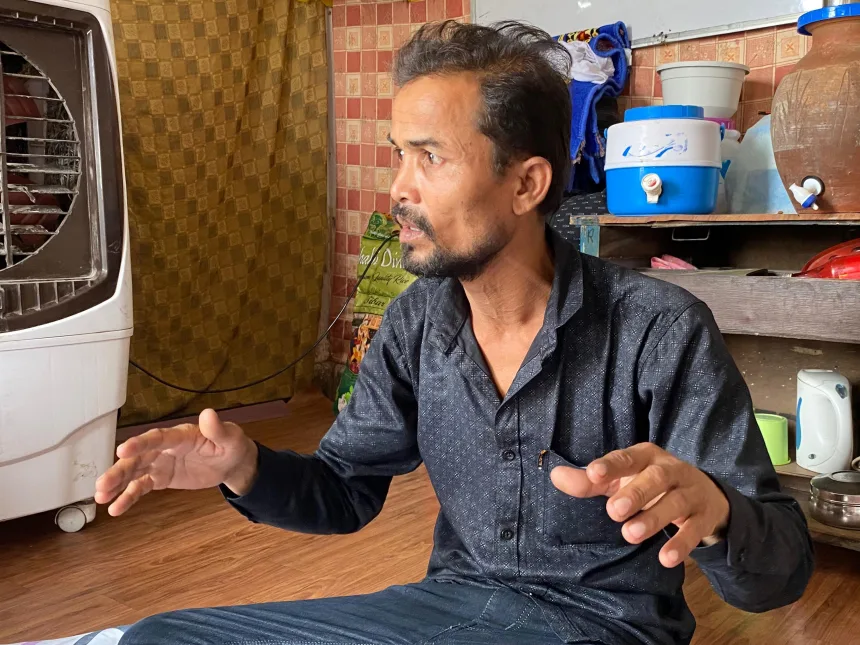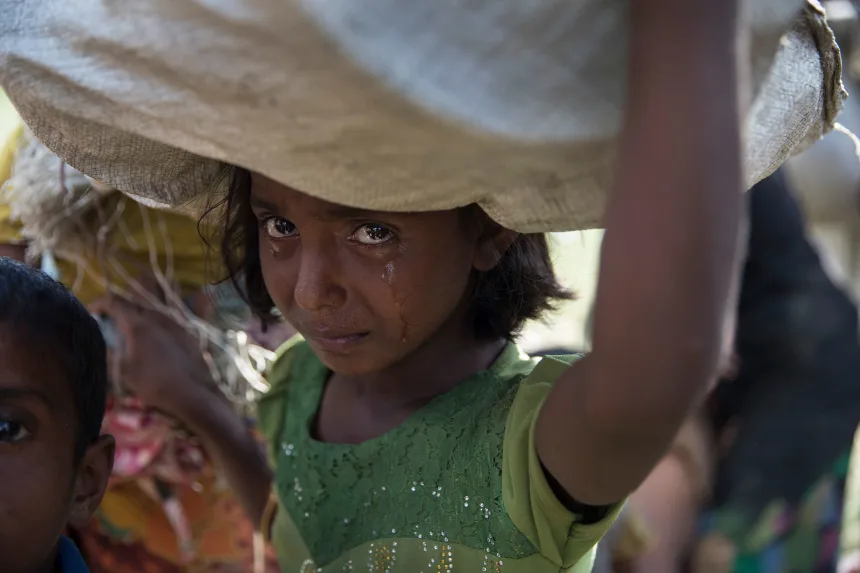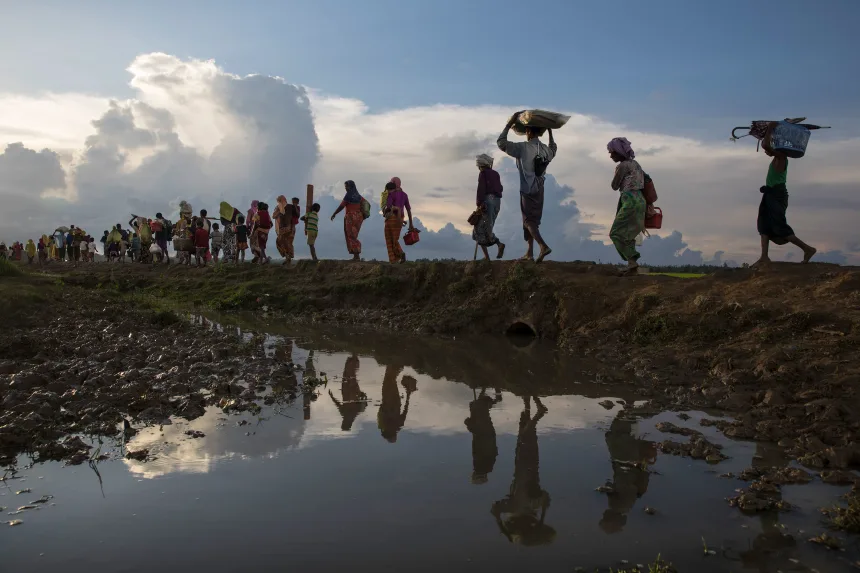India Rohingya Secret Deportation has raised serious human rights concerns as 40 Rohingya refugees were secretly rounded up and sent back to Myanmar. Eyewitness accounts reveal that the deportees were taken without due process, blindfolded, and pushed back into a country accused of genocide against them.
A Father’s Loss and a Community in Shock
Mohammad Ismail, a Rohingya refugee living in New Delhi, had built a fragile but hopeful life with his daughter Asma after fleeing Myanmar in 2017. Their escape followed a military-led campaign of mass killings, rapes, and village burnings — an operation the United Nations later described as a “textbook example” of ethnic cleansing.

For years, India had served as a refuge for Mohammad and Asma. He worked as a rag picker while she pursued an education. But just days before her planned wedding in May 2025, Asma was summoned by Indian authorities, allegedly to provide biometric information for updated identification documents.
Instead, she and 39 other Rohingya refugees disappeared.
Three days later, desperate phone calls revealed that the group had been transported over 1,500 miles away, first to the Andaman Islands, and then across the Indian Ocean toward Myanmar. Armed men reportedly forced them onto smaller boats, blindfolded them, and made them wade ashore under threat of violence.
The Secretive Operation
Flight tracking data reviewed by CNN indicates that an Airbus A321-211 passenger plane, operated by India’s Defence Research and Development Organisation (DRDO), left Ghaziabad Airport outside Delhi on May 7 and flew southeast toward Port Blair — the largest city in the Andaman Islands.
After landing, the plane’s transponder was switched off, a highly unusual step, and reactivated only when it was already heading back to the mainland. From Port Blair, the group was reportedly transferred onto a two-deck vessel and later split into smaller boats before being abandoned near Myanmar’s coast.
One deportee, John Anwar, recounted in a phone call that officers threatened to shoot anyone who resisted. “Your life is of no value. You have no country,” one officer allegedly said.
International Law and Human Rights Concerns
Human rights experts argue that India’s actions may violate the principle of non-refoulement — an international norm that prohibits sending refugees back to a country where they face persecution or danger.
Tom Andrews, the UN Special Rapporteur on human rights in Myanmar, condemned the deportations, calling them “an affront to human decency” and a “serious violation” of international law.
India has not signed the 1951 UN Refugee Convention, but its courts have historically upheld protections against arbitrary deportation. Legal experts say this case could set a precedent as the Indian Supreme Court considers whether Rohingya should be treated as refugees or illegal immigrants under Indian law.
Rohingya Life in India
There are an estimated 20,000 Rohingya living in India, many of them verified as refugees by the UNHCR. They have settled in urban clusters around Delhi, Hyderabad, and Jammu, often working in informal sectors.
However, the Indian government has taken a hardline stance. Home Affairs Minister Amit Shah has repeatedly called Rohingya “infiltrators” and pledged to expel them. Reports indicate that Indian authorities are actively verifying documents of suspected illegal immigrants and deporting those who cannot prove their status.
This crackdown comes amid growing anti-refugee sentiment and rising security concerns in the country.
The Perilous Return to Myanmar
The deported Rohingya were reportedly taken ashore in Myanmar’s Tanintharyi region — an area now plagued by civil war since the country’s 2021 military coup. Junta forces are battling multiple ethnic armed groups, creating an environment of instability and danger.
According to local witnesses, the deportees arrived exhausted, hungry, and frightened. “They told me they had not eaten for two and a half days,” one villager said. “They begged us not to send them to the Myanmar military.”

Instead, the group was handed over to a local armed faction opposed to the junta. While they are reportedly receiving shelter and food, their long-term safety remains uncertain.
Legal and Political Fallout
Delhi-based lawyer Dilawar Hussain has filed a petition in India’s Supreme Court demanding accountability and the return of the deportees. The court has said it will hear the matter along with other ongoing cases concerning the Rohingya community, with hearings scheduled for September 2025.
The Indian government has remained largely silent on the issue. Police officials confirmed the deportations but called them “legal” and a matter of national security, refusing to share details or provide deportation orders.
A Deepening Humanitarian Crisis
The forced return of Rohingya refugees highlights a worsening humanitarian crisis. Rights groups fear that more mass deportations could follow as India intensifies its crackdown.
For Mohammad Ismail, the personal pain is unbearable. Sitting in the small home where he once prepared for his daughter’s wedding, he now stares at her empty room.
“I thought we were safe here,” he told CNN. “If they had to deport us, they should have deported us together.”
Conclusion
The India Rohingya deportation case is more than just a story about one family — it is a test of how far a democracy can go in balancing national security and human rights. As global attention turns toward New Delhi, the fate of 40 deported refugees remains uncertain, caught between a hostile military regime and a world that has not yet found a lasting solution for the stateless Rohingya.



